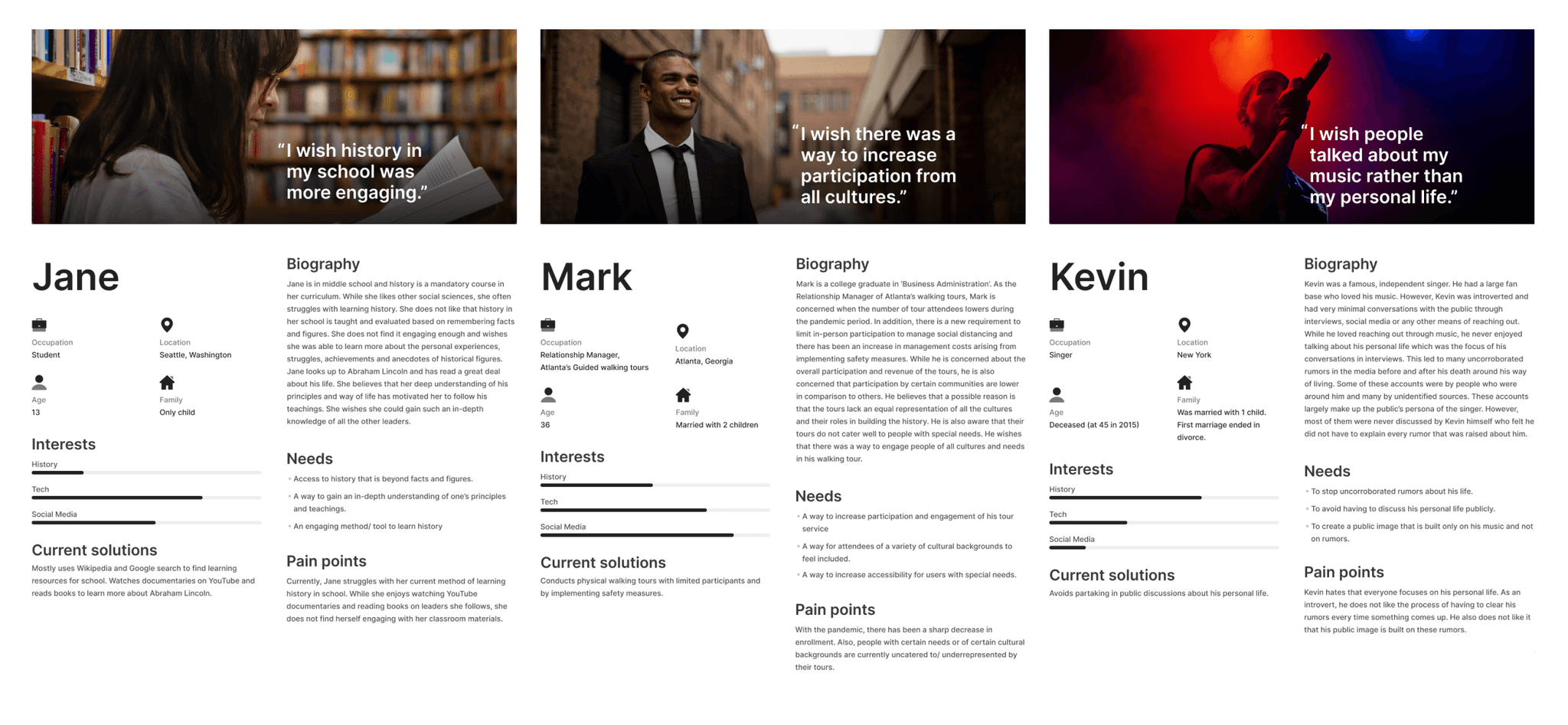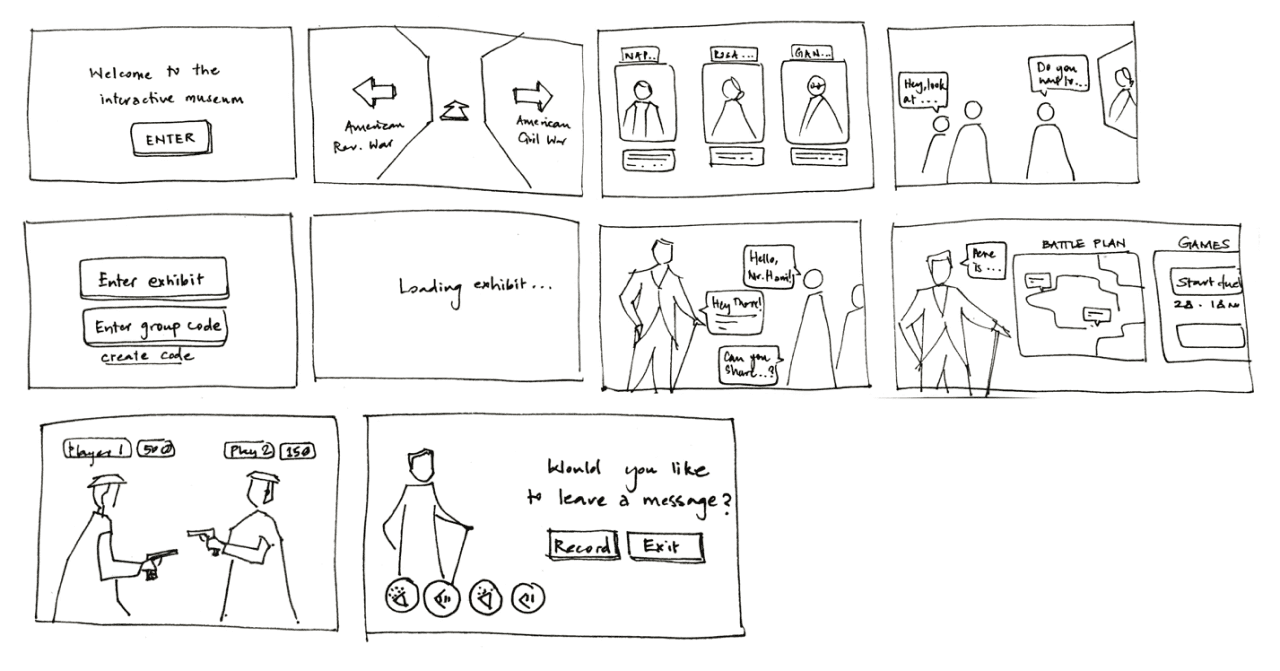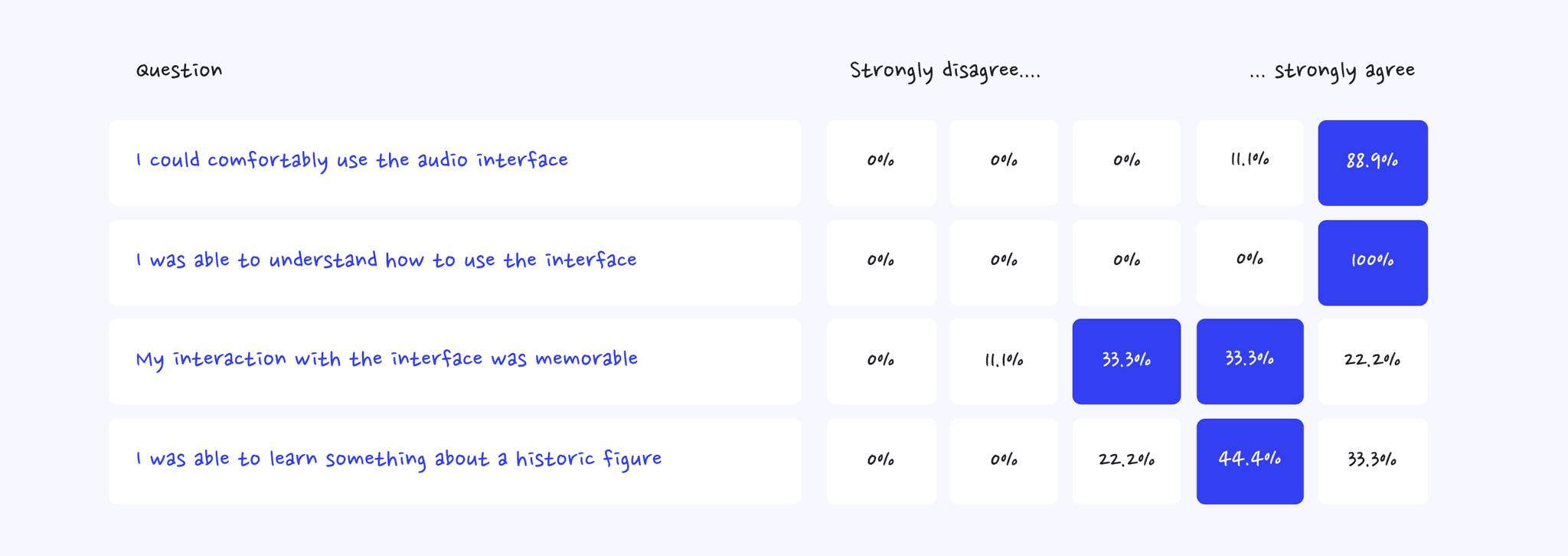MY ROLE
RESULTS

PROBLEM IDENTIFICATION
Survey respondents expressed a strong interest in learning about the personal life achievements, stories, and experiences of historical figures. This feedback uncovered an opportunity to help people connect personally with admired historical figures.
We had the survey reviewed and tested with moderation before distributing it.
EXPLORING THE SOLUTION SPACE
People found the purely factual responses less engaging than the narrative ones.
Adopting our Point of View (POV) statement, we developed three personas to guide our ideation process. Each team member generated eight quick ideas using the Crazy 8s technique, resulting in a total of 32 concepts. We narrowed these down to three for which we created detailed storyboards. Utilizing scenarios, task analyses, and UI critiques of similar products, we refined our ideas and reached a team consensus.
We set specific goals to evaluate our prototypes, focusing on accessibility and memorability. Each prototype was scored against these goals by all team members. Additionally, we collected feedback during a poster session where we presented our storyboard options to attendees. Based on these evaluations, we concluded that an audio app embodying the persona of a historical figure and facilitating ubiquitous learning most effectively met our goals.

OUTCOME
Employing an AI audio generation tool that mimicked the voice of John F. Kennedy, we devised and tested three tasks through a Wizard-of-Oz prototype. Following initial tests and participant feedback, we conducted further evaluations with nine participants.
These tests confirmed the importance of offering multiple modalities in learning. For instance, participants noted the absence of an option to skim through information and felt difficulty in remembering the information presented by the app. Feedback also indicated that purely factual responses were less engaging. From this, we deduced the necessity of using a narrative approach and incorporating ambient sounds that transport users to the historical setting, thereby enhancing engagement and immersion.
We tested using an AI audio generation tool that mimicked the voice of John F. Kennedy.
REFLECTION
Probing during user interviews challenged our decision to use an audio interface.
In our usability study, we assumed all participants were familiar with smart speakers, which led to gaps in our explanation of the interface and features. We could have tailored these details based on pre-questionnaire responses or shared them with all participants.
Additionally, our survey lacked open-ended questions about participants' reasons for using or not using smart speakers. This oversight limited our understanding of user interactions and preferences. In one of the interviews, further probing revealed challenges in our design decision to use an audio interface, indicating a need for broader questioning.
